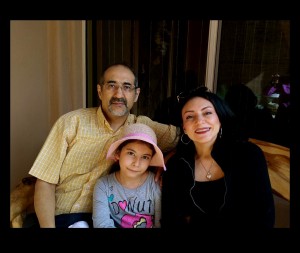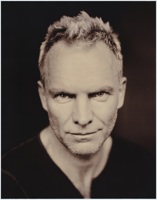Say what you will for the United Nations and its General Assembly. The sidewalk diplomacy almost never disappoints, and the stakes are always high.
Mahmoud Ahmadinejad of Iran is back in New York for the United Nations General Assembly. Thousands of members of the Iranian diaspora plan to demonstrate on Wednesday to protest the crushing of dissent in Tehran since June, when Mr. Ahmadinejad claimed to have been re-elected president in a landslide.
One prominent member of that diaspora will certainly not be present: Kian Tajbakhsh, a New Yorker and an Iranian-American scholar who was seized by the Iranian security forces in early July and has been confined since then without access to counsel. He has been accused of stirring up revolutionary sentiment and of being an instigator paid by sinister Western forces.
Mr. Tajbakhsh, 47, and his wife and their young daughter were planning to move to New York this fall for a visiting professorship in urban planning at Columbia University.
Instead, he remains in secret detention, surfacing only occasionally in a mass trial where the official narrative holds that all protests in Iran since June are the creations of the United States and its wealthy allies. Perhaps most remarkable to his friends is that Mr. Tajbakhsh, a secular scholar, is being tried alongside Islamist reformers.
The official indictment against him is a haze of inference and inanity: He was raised outside Iran, in London and New York; his father was a member of the shah’s government; in prison, he had to be taught how to pray, apparently having a deficit of piety in his upbringing.
More: He worked as a consultant for the Open Society Institute, which is financed by the Soros Foundation, and which the Iranians purport is a C.I.A. satellite. He subscribes to a listserv run by Gary Sick, a Middle East scholar at Columbia who is described in the indictment as a C.I.A. agent. He discussed a book with another troublemaker.
Pictures released from the mass trial last month show Mr. Tajbakhsh reading statements that are supposed to implicate him and others in the uprisings.
Another Iranian-American scholar, Haleh Esfandiari, who was held two years ago in solitary confinement for 105 days, said that she learned from the interrogations that the Iranian security forces were gripped with paranoia about popular movements that have overthrown autocratic regimes elsewhere. In this worldview, Mr. Tajbakhsh’s Western education, dual citizenship in the United States and Iran and breadth of interests would make him an obvious conduit for subversion.
“What they are doing to him and the others is really shameful,” said Ms. Esfandiari, author of “My Prison, My Home.” “The good thing about Iran is that nobody — I mean nobody in the country — believes these confessions, and no one pays attention to these trials. Any intelligent person can conclude that he’s saying these things because he is forced to.”
During her confinement in 2007, Ms. Esfandiari got to know Mr. Tajbakhsh because he was being detained under the same circumstances, on the same vague charges of stirring up trouble. She was released in August that year. A few weeks later, Mr. Tajbakhsh was freed just before President Ahmadinejad arrived in New York for the General Assembly. Part of his schedule included a talk at Columbia.
In introducing Mr. Ahmadinejad, Columbia’s president, Lee C. Bollinger, noted that Mr. Tajbakhsh, a Columbia graduate, was still being held in house arrest.
“Let me say this for the record: I call on the president today to ensure that Kian will be free to travel out of Iran as he wishes,” Mr. Bollinger said. “Let me also report today that we are extending an offer to Kian to join our faculty.”
It would be nearly a year before Mr. Tajbakhsh was able to travel freely, so he was still in Tehran in June.
“No one expected there to be this historic popular uprising,” said Pamela Kilpadi, a colleague.
Now Mr. Tajbakhsh is back in prison, and President Ahmadinejad is back in New York.
“Academics and religious scholars,” he said during his 2007 visit, “are shining torches.”

 Sting makes appeal for Kian Tajbakhsh and Iranian detainees.
Sting makes appeal for Kian Tajbakhsh and Iranian detainees.